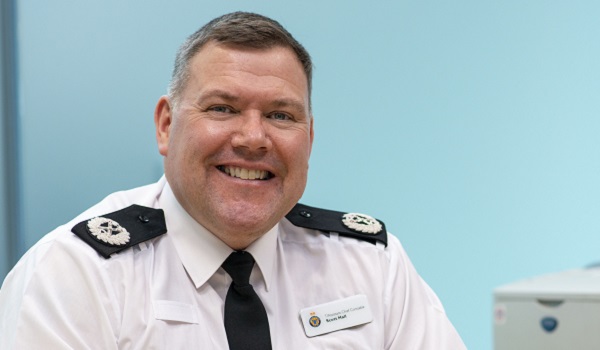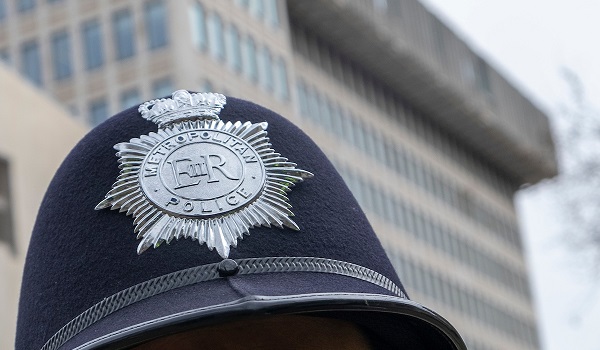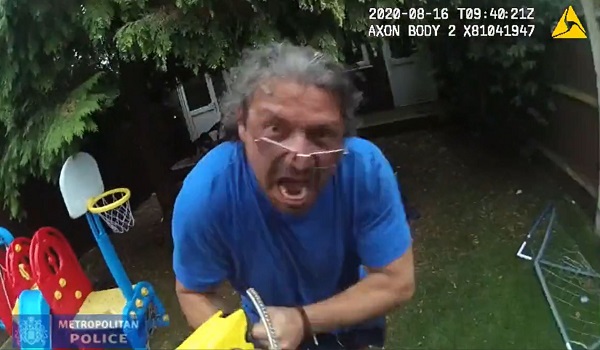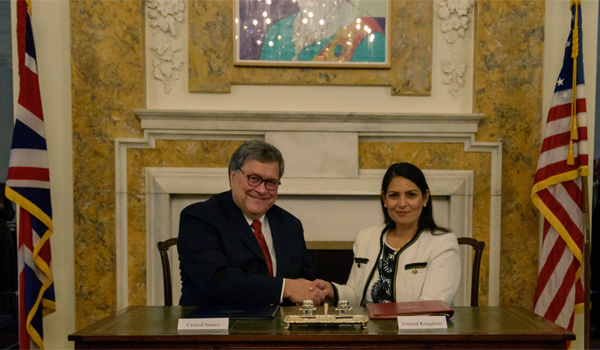Stop and search powers boosted by new crime plan
Limits imposed on police use of stop and search will be permanently reversed as part of the Prime Minister’s ‘Beating Crime Plan’, it has been announced.
Section 60 powers give officers the right to search people in a defined area during a specific time period when they expect serious violence, and officers can look for weapons before they can be used, or those used in a recent attack.
The permanent change follows a nationwide pilot that reduced the level of authorisation needed to impose a Section 60 order, and lowered the degree of certainty required.
A statement said the change would “empower police to take more knives off the streets”, but according to Home Office figures to the year March 2020, only around four per cent of section 60 stop and searches result in an arrest. For searches requiring reasonable suspicion that someone is in possession of drugs, weapons or stolen property, the figure rises to 13 per cent.
Speaking at a launch event at Surrey Police headquarters, Boris Johnson defended the move insisting it was not a “strong-arm” tactic but a “kind and loving” way to get dangerous weapons off the streets.
He said: “I disagree with the opponents of stop and search. Section 60 Stop and Search orders, I think, can play an important part in fighting crime. They are not the only tool that we have got to use. They are part of a range of things we have got to do to fight street crime.
“I think that giving the police the backing that they need in law to stop someone, to search them, to relieve them of a dangerous weapon – I don’t think that’s strong-arm tactics, I think that’s a kind and a loving thing to do. The people who often support stop and search most passionately are the parents of the kids who are likely themselves to be the victims of knife crime.”
Other measures introduced as part of the plan include:
- Expanding the use of electronic monitoring so burglars and thieves will have their whereabouts monitored 24 hours a day upon release from prison;
- Trialling the use of alcohol tags – which detect alcohol in the sweat of offenders guilty of drink-fuelled crime – on prison leavers in Wales. This is to address the fact alcohol is a significant driver of crime, playing a part in 39 per cent of all violent crime;
- Making unpaid work more visible by getting offenders to clean up streets, alleys, estates, and open spaces, to ensure justice is seen to be done;
- Investing in specialist support in both mainstream schools and Alternative Provision – including mental health professionals, family workers, and speech and language therapists – in serious violence hotspots to support young people at risk of involvement in violence to re-engage in education;
- More money for Violence Reduction Units to provide high-intensity therapeutic and specialist support from trained youth workers, including at crisis points such as when a young person is being admitted to A&E with a knife injury or upon arrest, to divert them away from violence;
- Enhancing the role for police and crime commissioners (PCCs) by launching the second part of the PCC Review to equip them with the tools they need to drive down crime and anti-social behaviour (ASB) in their local areas;
- Every neighbourhood in England and Wales will have a named and contactable police officer dedicated to its service; and
- League tables to be brought in for 101 and 999 call answering times, so the public can see how responsive their force is when they call them for help.
The Government said the plan will work across the police, courts, prison and probation service to drive down and prevent crime, improve confidence in the criminal justice system, rehabilitate and create safer streets. It will have a particular focus on early intervention and prevention.
Home Secretary Priti Patel said: “I am absolutely determined to cut crime and deliver a safer society for the public, and the Beating Crime Plan shows how the Government is going to do just that.
“We’re putting 20,000 new police officers on the street, equipping them with new powers to catch criminals and take away knives, and shutting down drug gangs who exploit chidren and the vulnerable to make money. This plan sets out a clear path for a better future for the British public – one with less crime, fewer victims, and a safer society for all.”
Mr Johnson said: “When I first stood on the steps of Downing Street as Prime Minister, I promised to back the police and make people safer, because we cannot level up the country when crime hits the poorest hardest and draws the most vulnerable into violence.
“That is why my Government has remained unstinting in its efforts to protect the British public and this plan delivers a fresh commitment, as we emerge from the impacts of the pandemic, to have less crime, fewer victims and a safer society.”
The Beating Crime Plan also seeks to address the underlying causes of crime and will see the introduction of new tactics to deal with issues related to drugs and alcohol – a major driver of burglary, violent crime and homicides.
This will see an increase in the police use of drug testing on arrest in a bid to challenge drug misuse, reduce demand and change the perceived acceptability of the substances.
As part of this work, the Government has announced plans to convene a summit to bring together key partners, including employers, educators, law enforcement and health partners to work up a comprehensive package to drive down illicit drug demand and misuse, and tackle these challenges across society.
Chair of the National Police Chiefs’ Council, Martin Hewitt, said: “The Beating Crime Plan contains many areas where policing has had prior engagement with the Government and some new ideas. We received the Plan today and will now be reviewing it carefully to understand how we deliver it operationally.”
Marc Jones, chair of the Association of Police and Crime Commissioners, welcomed the Government’s plan to launch the second part of the PCC Review to “enhance the role of PCCs” and equip them with “the tools they need to drive down crime and ASB in their local areas”.
“PCCs have a key role in driving forward improvements in the wider criminal justice system, working with local partners to tackle reoffending and help prevent crime from happening in the first place,” said Mr Jones, who is the PCC for Lincolnshire.
“We want to deliver even more in this space. This focus on prevention underpins all of our work and we are heartened to see it given such prominence in the plan.”
He said PCCs were also “pleased to see the strong end-to-end focus” of the Beating Crime Plan – from tackling serious violence and high harms, to driving down neighbourhood crime, to tackling ASB.
“We know from the victims and community groups that we speak to, that these crimes destroy lives, and it is imperative that we work together at a local and national level to tackle them,” said Mr Jones.
“We are particularly encouraged to see the strong focus on ASB, which for too long has been neglected. PCCs already work closely with local authority partners and community groups to tackle ASB but we want to do more and go further. We would like to use the platform of the Beating Crime Plan to galvanise local and national partners to come together to stop ASB in its tracks – ensuring we use all the powers available to us to tackle perpetrators, support victims and invest in local communities, and where we need more powers – to make the case to government for them.”
He added: “PCCs recognise the critical role played by neighbourhood police in tackling crime and it is good to see that this is given prominence in the plan.
“However, we have some concerns about the proposal in the plan to publish league tables. While we recognise the critical importance of speed with 999, we believe that quality is also important particularly with 101 calls. We have raised this issue directly with the Policing Minister and he has committed to working with PCCs to ensure that any league tables capture a range of measures and are as much about quality and consistency of service as speed.”







